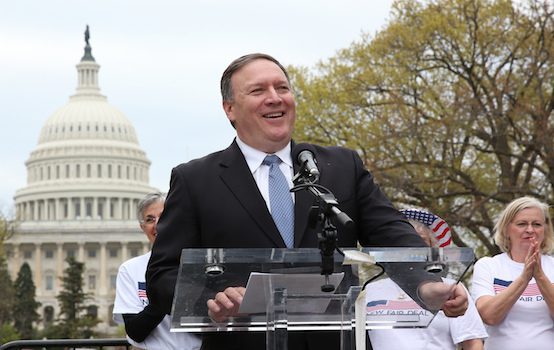The Former Raytheon Lobbyist and the Bogus ‘Emergency’

The Wall Street Journal reports on a small piece of good news:
The State Department has forced out a senior official who played a role in crafting a plan that led to billions of dollars going to the defense firm he formerly represented as a lobbyist, according to current and former U.S. officials.
Charles Faulkner, who previously represented Raytheon Co., took part in an unusual Trump administration move to declare an emergency over tensions with Iran to fast-track $8 billion in arms sales to Saudi Arabia and the United Arab Emirates, circumventing normal congressional review, these people said.
It is good that Faulkner’s involvement in pushing through the bogus “emergency” to expedite arms sales to the Saudis and Emiratis contributed to the loss of his position, but he should have been forced out much earlier. Unfortunately, the Secretary of State who declared the made-up “emergency” is still firmly in place. It is not surprising that a former Raytheon lobbyist was involved in an abuse of power that redounds to the benefit of his former employer and the Saudi coalition. After all, the same person took advantage of his position at the State Department to help both the weapons manufacturer and the coalition last year.
This is not the first time that Faulkner was involved in a shady, unethical decision affecting arms sales to the Saudis and the UAE. Attentive readers will recall that he was the same former Raytheon employee who led the legislative affairs team that advised Pompeo to issue his bogus certification that the Saudi coalition was making an effort to reduce civilian casualties. The new WSJ report also recounts the details of the earlier story. Pompeo issued this certification last September when all of the evidence and most other department officials said otherwise, and according to WSJ reporting at the time he did so in order to safeguard current and future arms sales to Saudi Arabia and the UAE:
He sided with his legislative affairs team after they argued that suspending support could undercut plans to sell more than 120,000 precision-guided missiles to Saudi Arabia and the United Arab Emirates, according to a classified State Department memo and people familiar with the debate.
This plan for 120,000 PGMs was the same $2 billion arms deal that got Faulkner in trouble this spring. Faulkner’s conflict of interest was already impossible to miss nine months ago, and apparently this time it was too much even for the Trump-era State Department.
Last year, Faulkner advised Pompeo to certify something to Congress that they had to know wasn’t true. The Saudi coalition was not doing enough to minimize civilian casualties, and they weren’t even trying to do so. An honest assessment of the Saudi coalition’s conduct would have reflected that, but Pompeo chose instead to lie to Congress, and he was encouraged to do that thanks to the bad, self-interested advice he received from Faulkner and his team. This year, Faulkner was once again involved in an effort to supply weapons to war criminals as they slaughtered civilians in Yemen. Faulkner is leaving, but the administration is still pressing ahead with the arms sales in their arrogant attempt to avoid Congressional review. Congress needs to keep fighting against the bogus “emergency,” but they also need to hold Pompeo and Faulkner accountable for their role in the bogus Yemen certification from last year.
Comments